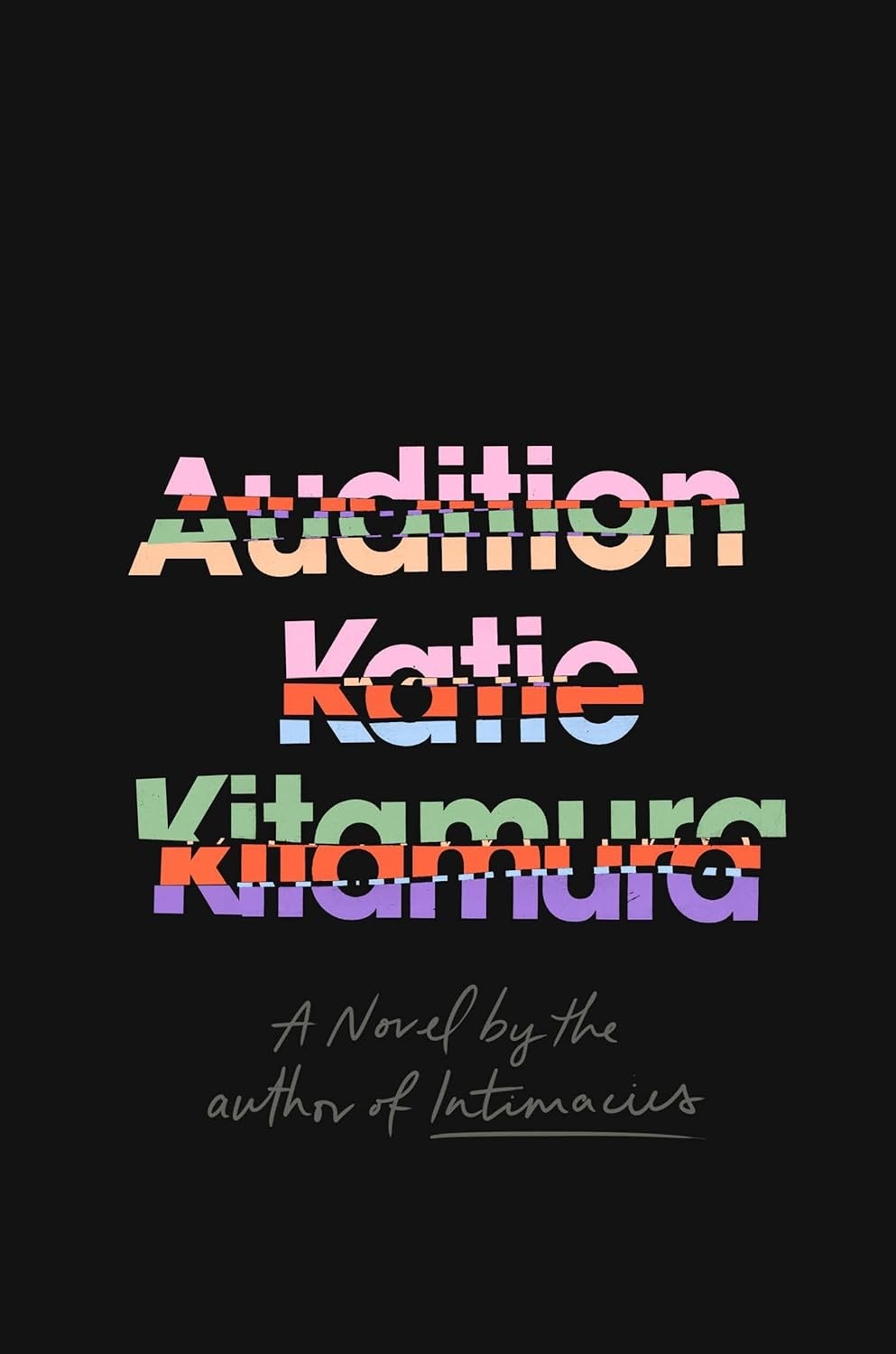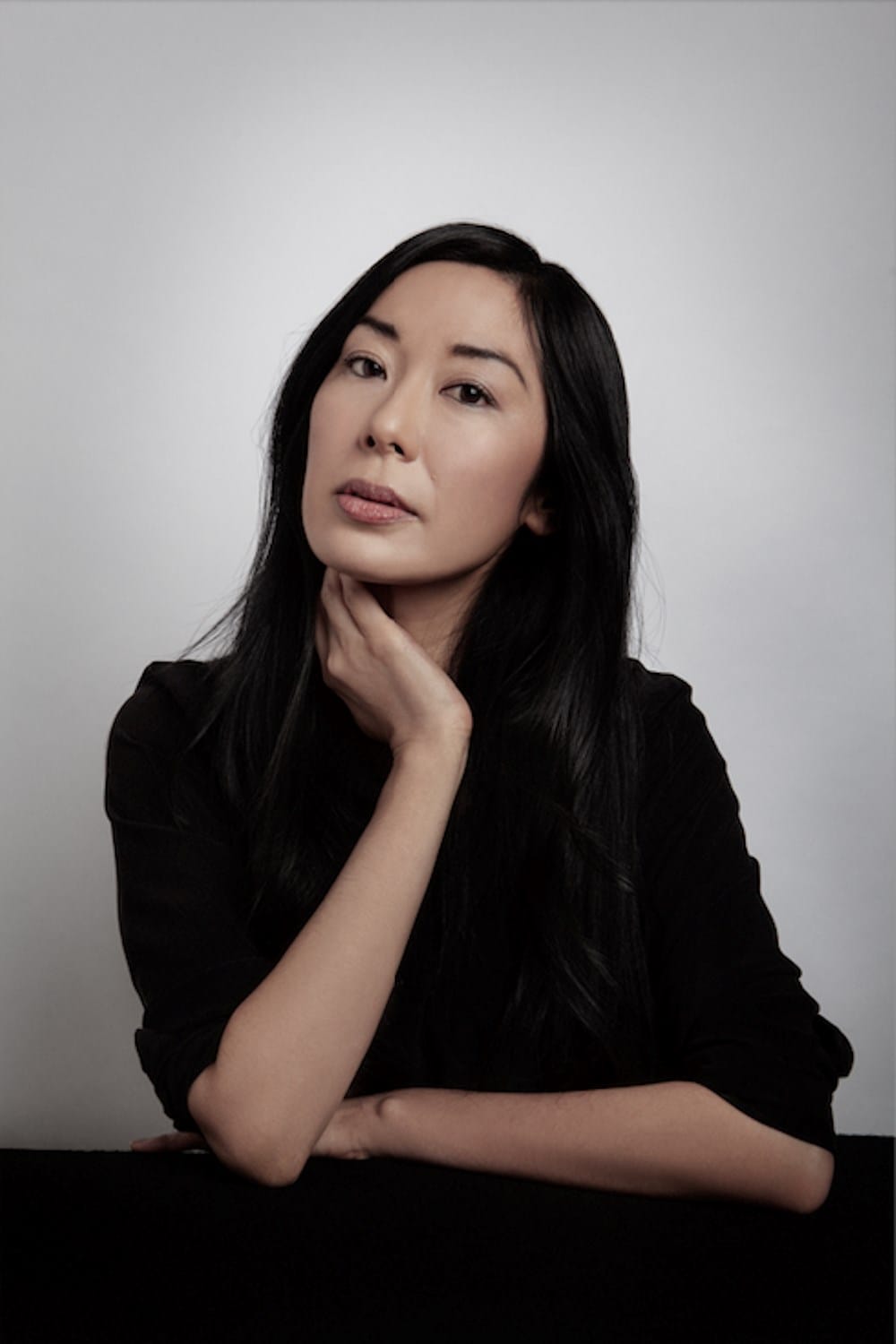Katie Kitamura’s new novel, Audition, begins in a state of Hitchcock-ian suspense. An unnamed female narrator finds herself in a faceless restaurant in New York’s financial district to meet a young man named Xavier who has recently blown into her life, convinced he is her son. As they dance delicately about their ambiguous relations, the woman glimpses her own husband enter the unfamiliar restaurant, look around, and then abruptly leave. What unravels is a strange and fascinating novel narrated by an ostensibly cool-headed actress – and ostensible mother – engaged in multiple layers of performance.
“I’m always interested in moments between people who know each other intimately, when a kind of sliver of uncertainty or indeterminacy introduces itself,” says Kitamura from New York, where she lives with her husband, author Hari Kunzru, and their children. This space of uncertainty provides moments of thrilling dislocation in Kitamura’s books – whether it’s a character’s unexplained disappearance (A Separation, 2017), or a moment of queasy understanding between an interpreter and an accused war criminal (Intimacies, 2021). Audition completes the loose trilogy comprised of these last two books, with shades of David Lynch and Ingmar Bergman as well as Hitchcock, and anchored by a woman whose job is to channel the words of others.
Below, Katie Kitamura discusses the uncanny nature of parent-child relationships, the theatre of the everyday, and finding authenticity in performance.

Laura Allsopp: The action of Xavier, his whole character, is deeply destabilising. How did the idea of someone claiming to be another person’s child present itself to you?
Katie Kitamura: I’d seen this headline somewhere that said – it was very simple – “A stranger told me he was my son.” I didn’t click on the link because I already had a very strong feeling that there was something there for me in fictional terms, and there was possibly a novel there to write. I sat with the idea for quite a long time. It was interesting to me because of the notion that in a single moment, a single encounter, everything you understand about yourself, about your position in the world, could be overturned – which is something that I’ve tried to explore in some of my other work.
But I was also really fascinated, just on the level of the sentence, in the tension and contradiction between “stranger” and “son”. I hadn’t started writing and I met with a friend who has a child who’s in his twenties, and I said, this sentence is really beguiling to me, and I don’t really know why. And she said, Oh, well, that just sounds like a description of parenthood – every time my son comes home from college, it’s like a stranger walks in the door. I think at that moment, something really clicked for me.
LA: The narrator’s attitude to the boy makes me think of the word cleave, the way she’s simultaneously drawn to and repelled by him.
KK: We all know that a child should grow to be independent. But at the same time, there’s something very strange and painful about the idea that somebody, who you have been so close to for the entirety of your life, must in some way become a stranger in order to become who they really are. I think that colours her relationship with this person who in parts of the book is her son, and in other parts of the book is a stranger to her. I’m always interested in moments between people who know each other intimately, when a kind of sliver of uncertainty or indeterminacy introduces itself. When you might look at somebody you know – your partner, for example – and suddenly they just seem like a stranger. It struck me that the relationship where that happens in an incredibly accelerated way is in the relationship between parents and children, because there is a constant renegotiation of identity, of power relationships. People are remaking and making themselves again in that relationship on a very, very short timeline. I always think that as much as [children] might seem to fluctuate to us, I think we also fluctuate to them. So it’s an incredibly kind of volatile relationship in some ways.
“Everything about a novel is incredibly fake. When I read, despite that, I still hope that I’ll be able to touch upon something that’s real” – Katie Kitamura
LA: You’ve mentioned this new book being in a dialogue with your previous two novels, A Separation and Intimacies, which are narrated respectively by a translator and an interpreter. How does this book, which is rooted in the voice of an actor, speak to those previous books?
KK: I’m interested in the idea of characters who do not speak their own words, who have words almost literally put in their mouth. I’m interested in characters who are channels for language, and in particular, other people’s language. And I like to think about how people, or how bodies, change language as they pass through. I realised, especially when I was doing research for my previous book, which is about a simultaneous interpreter, how much there’s no clean, solid transfer from one language to another. Something is always lost on the way but something’s also added. This novel is concerned with performance, both in terms of the narrator’s occupation, but also in terms of the roles that we’re playing every day in our own personal lives. It is striking to me that in a lot of my novels the characters who are channels for other people are often women and then the writer is almost always male. In this novel, which is something I didn’t realise until I finished it, it turns out that the two central male characters are both writers as well.
LA: I love the section that deals with an actor whose celebrated performance in a film is actually an accident, a function of his cognitive impairment. Can you talk about how you think about authenticity in and of itself, and then authenticity in performance, in writing even?
KK: I think the question of the author’s intention is a kind of fraught one; I don’t always believe that the author is in total control of what they make. At some point, the narrator says that a performance is maybe the space between the actor and the audience in the space of interpretation. And I think that’s very true of novels as well. In that story of the film, I wanted to think about what it would mean if the performer’s intention was gone – what does that do to the meaning of the thing that they have created? I think the narrator is very conflicted about it, because on the one hand, clearly, it’s not what she thought it was, but there was something real about what has been communicated on screen that is authentic – and that is actually deeply troubling to her; it’s almost too much. Authenticity is a really interesting subject to think about in art making. I think often what we think of as authentic is a performance of authenticity. And often what is genuinely authentic is so disturbing in some way that we would almost prefer the performance of it to the thing itself.
LA: We don’t see the play being performed, but rather the lead-up and the post-performance. You trained as a ballet dancer as a child – what is the attraction of the theatre to you?
KK: I’ve always been very interested in these spaces that are very clearly demarcated, that have a lot of rules regulating the behaviour within them – like a stage, or a courtroom, or a boxing ring. It’s this idea of a space that is in so many ways shaped through artificial means, whether it’s the rules of a sporting match, or the codes of behaviour that regulate a courtroom and the spatial organisation of where everybody is placed, how freely they are able to move within that space. Or the obvious suspension of disbelief that happens when you go into the space of a theatre. All of these things are products of deep artifice, and yet, I think in all of them, the hope, or even the expectation, is that they’ll touch upon something that is real in some way, that is authentic. Of course, that’s what a novel does. Everything about a novel is incredibly fake. When I read, despite that, I still hope that I’ll be able to touch upon something that’s real. And so I think I’m interested in those physical spaces, and this idea that when you cross over into them, maybe something out of the ordinary could happen.
Audition by Katie Kitamura is published by Fern Press, and is out now.
